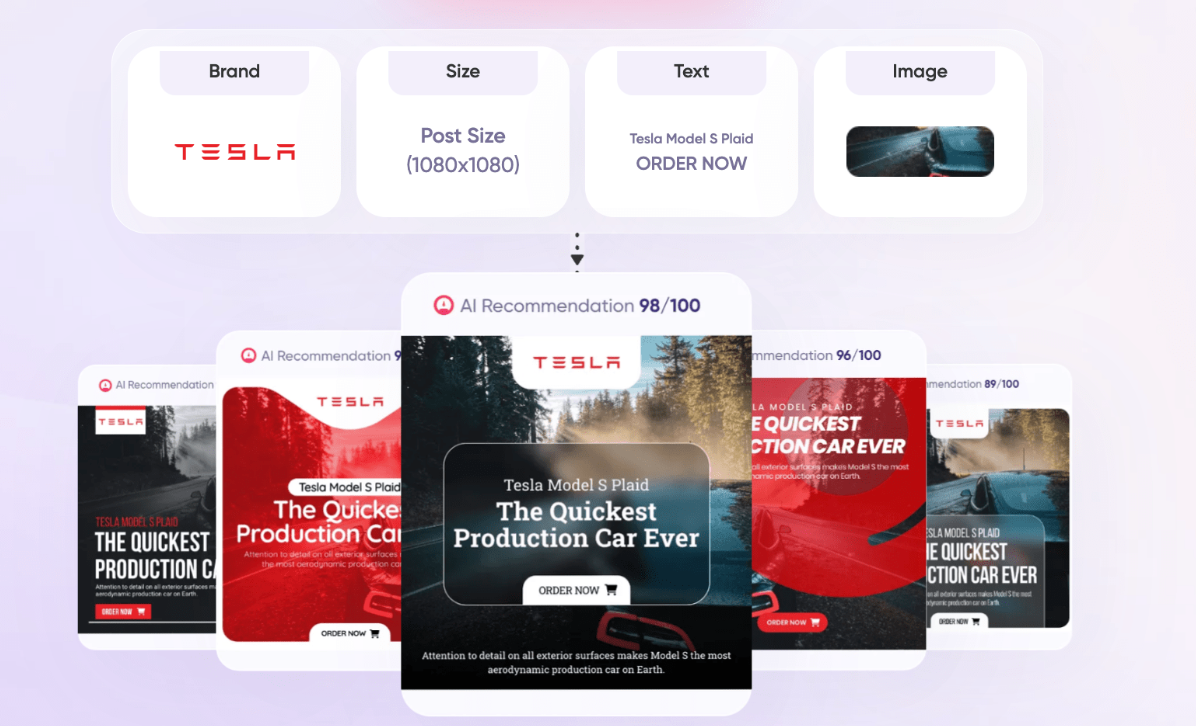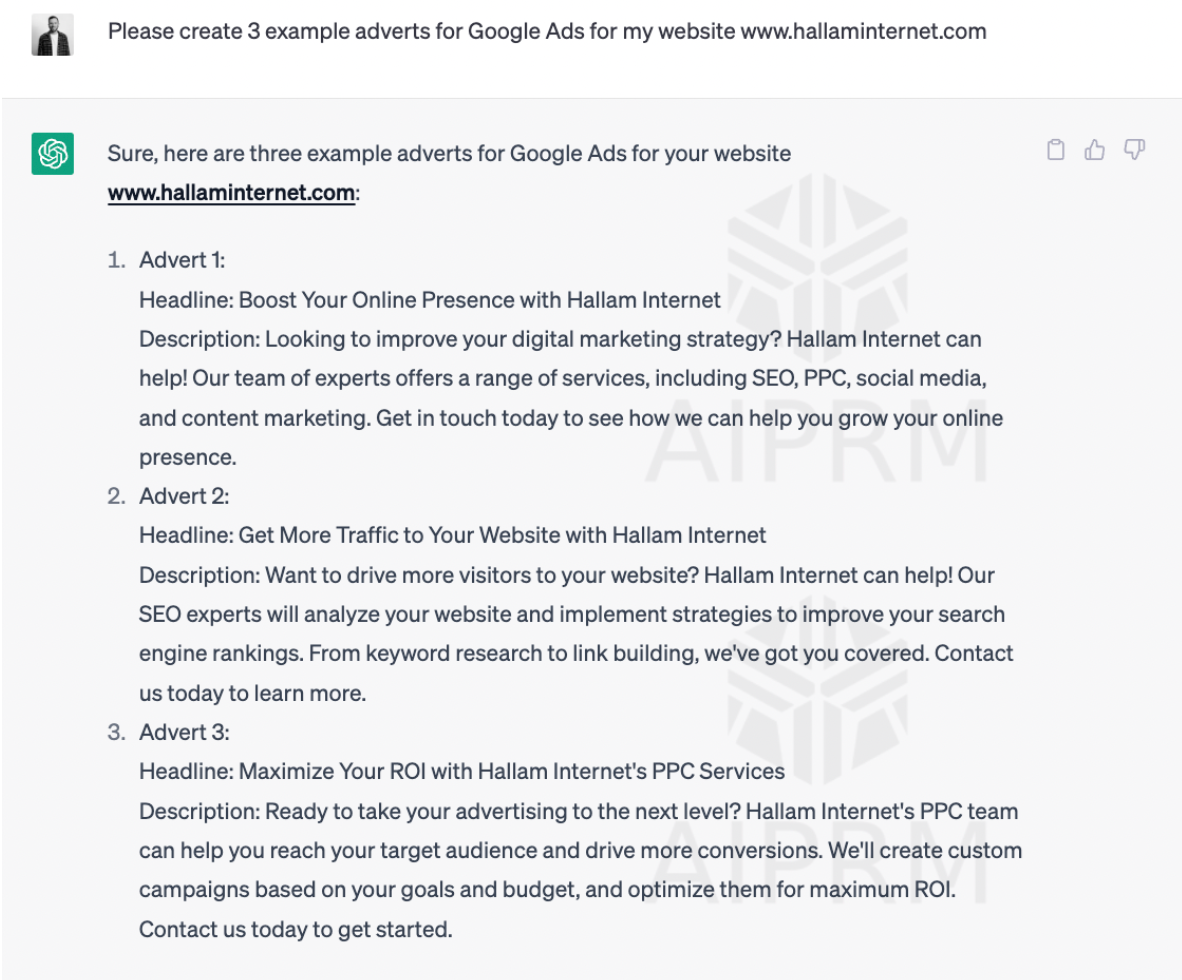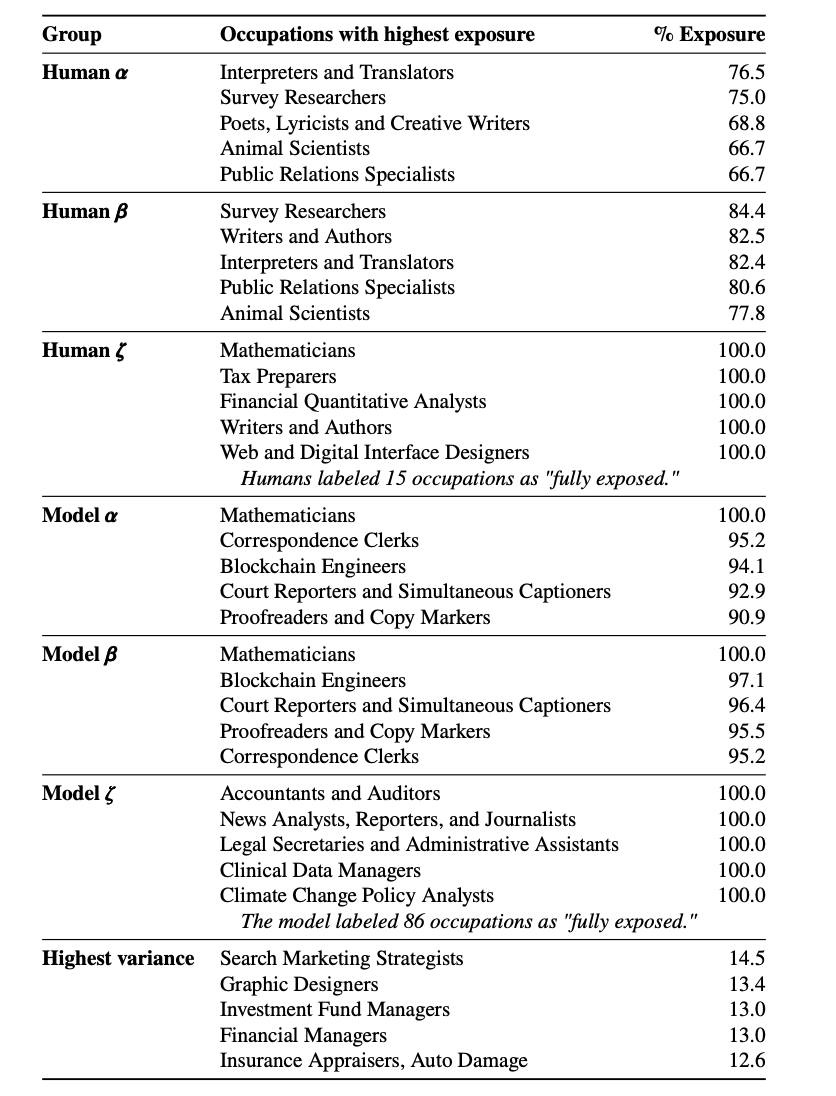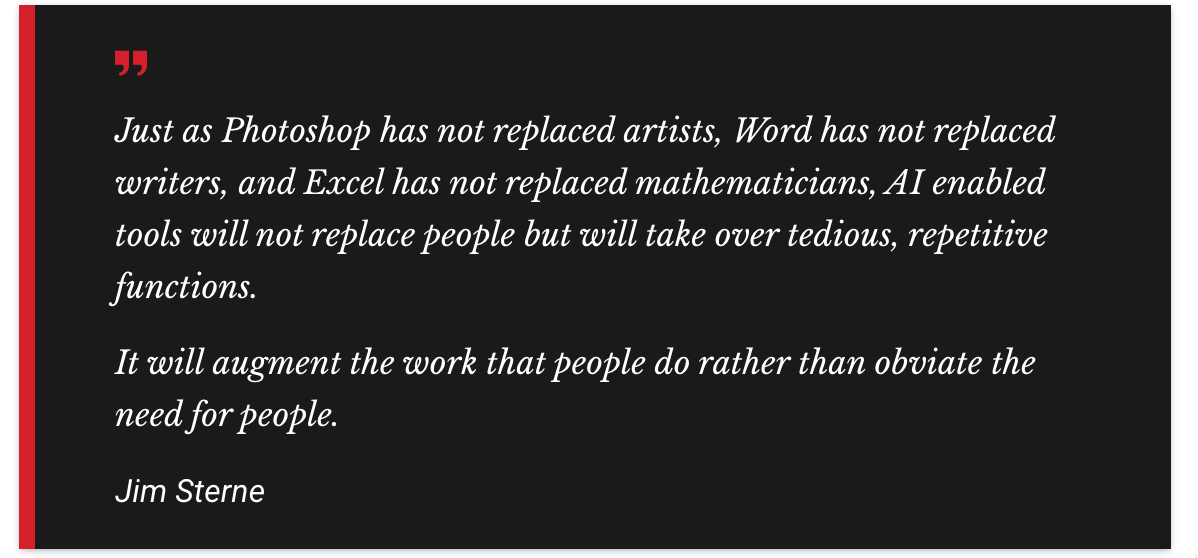Generative AI is spreading fast in the world of marketing. The capability of artificial intelligence (AI) – and in particular generative AI – has greatly accelerated in the last few months with advancements in the form of Chat-GPT and AI image generation platforms such as DALL-E, Stable Diffusion and Midjourney.
From targeting to creative, AI now offers many more opportunities for marketers to improve campaign performance, and boost efficiency. But with these opportunities come challenges, including navigating ethical concerns around AI-powered targeting and creative work.
In this article, we’ll explore the different ways that AI can be used as a productivity enhancement tool, as opposed to a complete human replacement. Focusing on how exactly AI will reshape the marketing workforce, and the skills we’ll need to thrive now and in the future.
Generative AI is supercharging productivity
Many marketers have been using generative AI to speed up the creative process, such as drafting messaging, designs, copywriting and proposals.
Advances in tools such as Midjourney, DALL-E, and even Canva have significantly reduced the barrier to entry for creative outputs, and improved our ability to scale outputs into various ad formats.
One successful example of AI-powered creative optimisation is the “Draw Ketchup” campaign by Kraft Heinz. The campaign used image generation platform DALL-E 2 to ‘draw ketchup’ and presented the concepts to the public as an attention grabbing creative campaign, claiming a 1500% uplift in social conversations relating to the brand and a 10% uplift in sales.
Other examples of AI-powered software that can help speed up the creative process include:
- Midjourney: an AI-powered image recognition tool that can analyse images and generate image assets based on a range of text prompts.
- Adext: an AI-powered ad optimization tool that can analyse ad performance data and optimise ad serving across various platforms.
- Persado: an AI-powered platform that can generate and translate ad copy and assets based on data and insights, enabling advertisers to create more effective campaigns.
- Adcreative.ai – an AI powered ad generator focused on ad creatives and social media post creatives as a way of speeding up the creative production process.

The tools, which all launched within the past year, open up new opportunities for brands to bring down the cost of the creative process by speeding up the way we conceive, design, produce and refine creative ideas.
Aside from the proliferation of creative platforms, Chat-GPT has clearly been gaining the most widespread attention in the last few months.
Chat-GPT is a large language model that can generate human-like responses to user queries. By using Chat-GPT, advertisers can save time on a wide variety of tasks such as broad market research, ad copy generation, first-draft copywriting, coding, UX development and much more by feeding the platform text based prompts.

However, while generative AI clearly has plenty of upsides related to efficiency and productivity, there are still issues to consider such as questions around copyrights, the potential for bias and concerns over what the reliance on AI might mean for the workforce of the future.
Ethical concerns require human oversight
Algorithmic bias
One major concern around generative AI is algorithmic bias, where AI algorithms may inadvertently discriminate against certain groups of people.
As an example, Levis have been criticised for using AI generated models on their website recently as a lazy attempt at increasing diversity.

AI systems can only be as unbiased as the data they are trained on, and if that data is skewed or biassed in some way, the AI will reflect those biases.
Several companies are taking proactive steps to address these ethical issues. For example, Google has introduced new policies to ensure that its AI algorithms are fair and unbiased. Similarly, Facebook has created an AI ethics board to review and advise on its use of AI.
Ownership
This question of ownership is something that more brands are taking seriously in recent weeks. Some content platforms, such as Getty Images, have banned AI content due to potential copyright issues.
Getty Images, known for its historical and stock photos, has sued AI image generation Stability AI, the maker of Stable Diffusion, for copyright infringement. Getty alleges that the company copied over 12 million of its images to train its AI model ‘without permission or compensation’.
Privacy and transparency
Generative AI relies on the collection and analysis of vast amounts of data, which raises concerns about privacy. It’s important for businesses to be transparent about how they are collecting and using customer data, and to give users the option to opt out of data collection if needed.
Users have no idea what sources are behind an answer with a tool like ChatGPT, and the AIs won’t provide them when asked. This creates a dangerous situation where an algorithmically biased machine may be viewed by the user as an objective tool that must be correct.
Existential risks
Other risks recently called out by the authors of the social dilemma include the genuine risk of reality collapse, mass fakes, collapse of trust, exponential blackmail, biology automation, and exponential scams.
Aside from this, there is a real threat that AI has the ability to wipe out millions of jobs in the coming years and throw the wider global labour market into question, which brings me on to my next point.
40% of professionals worry that Generative AI will make their roles obsolete
While AI has many benefits in digital advertising, it’s important to consider the potential impact on the individuals and the wider labour market.
60% of young professionals believe AI will transform their jobs over the next five years, and more than 40% worry that Generative AI will make their roles obsolete.
A recent OpenAI study revealed the types of occupations which could be most affected by large language models (LLMs).

Soft skills such as critical thinking are less likely to be impacted by generative AI. Conversely, AI is more capable of programming and writing, implying that occupations involving these skills are likely to be impacted most in the short-term.
The risk of relying solely on AI
AI chatbots like ChatGPT lack the ability to think and simply operate as software that generates output based on input.
ChatGPT is a type of Large Language Model (LLM) neural network that undergoes unsupervised and supervised training using text from the internet.
As a result, LLMs are adept at replicating previously published content. However, for AI to produce accurate responses, it needs real people with real-world knowledge to provide new, trustworthy information to the internet.
One major drawback of relying on AI for tasks like content generation is that it can lead to homogenous content across different platforms, since AI chatbots only draw from the same existing information. This will result in an over-saturation of search results with similar content presented in various ways.
Therefore, it’s difficult for brands producing content using ChatGPT to gain a competitive edge over others who are doing the same.
Essential skills in the age of AI
It should be clear by now that there are many skills that AI lacks and where human judgement is required. These skills include:
- Strategy
- Critical thinking
- Communication
- Creativity
- “Big picture” analysis
Worryingly, many marketers seemingly lack these fundamentals. A recent study published by Marketing Week found that:
- 95% of agencies don’t think marketers brief them with any clarity or strategy
- Two-thirds of briefs are unclear about who they are targeting
- More than 50% of client briefs delivered have no objectives
Brands who place all their faith in AI generated content without the support of human expertise, oversight and a clear strategy, will inevitably fail.
An experienced marketer who understands when to use the right tool/prompt for the job, will perform better than a marketer equipped with the tools but lacking experience in how to direct them.

Generative AI will impact all markets, but human expertise will be required across all professions. AI will amplify, not replace human creativity.
Closing remarks
As AI continues to evolve, it’s important for marketers to stay up-to-date with the latest developments but also use them responsibly.
Regulation will naturally become a challenge, as with all new emerging tech. Generative AI will (rightly) start to receive more attention from lawmakers and regulators in the coming months.
The overall purpose of this post is to demonstrate the need for and value in creative direction, human curation, human refinement of an idea, and decision-making in terms of what is right for the brands we work with.
The opportunity for marketers is in the combination of human creative leveraging of these technologies to supercharge outputs and cut down on the time required across mundane tasks.
Finally, prepare yourself for the exponential rise in the capabilities of these systems. In the words of Sam Altman (Open AI lead), “GPT-4 is slow, buggy, and is an early glimpse of what generative AI is capable of”.
There’s much more to come and it’s worth investing in training to stay up to date. Luckily, a few organisations have recently opened up a raft of courses on AI related topics including:
As always, if your business has any questions around generative AI and would like support, please don’t hesitate to get in touch with our team.
Source link
#Generative #human #expertise